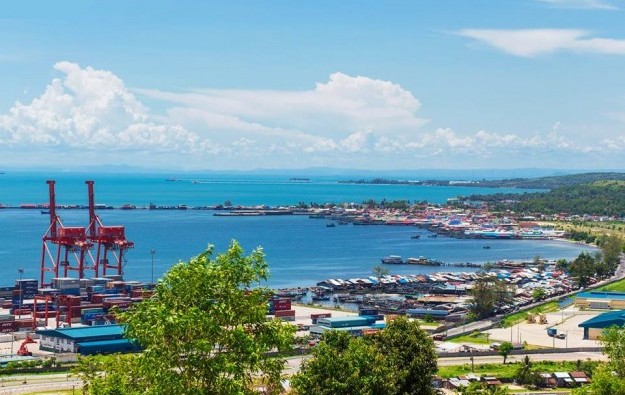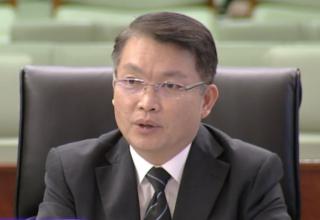Gaming bill makes Cambodia more appealing to ops: experts
Oct 12, 2020 Newsdesk Latest News, Rest of Asia, Top of the deck

Cambodia’s draft bill on the management of commercial gambling could help the country become a more appealing destination to international casino operators in the long run, particularly because of its proposed low tax rate on gaming revenue and a more developed regulatory framework, industry observers have suggested to GGRAsia.
The long-awaited bill - known as the Law on the Management of Integrated Resorts and Commercial Gambling (LMIRCG) - was approved by Cambodia’s national assembly last week, and is now to be reviewed by the country’s senate. The draft law sets a minimum capital requirement for investment in a casino project, and designates which areas in the country will be allowed to offer commercial gambling, according to media reports.
The draft law could pave the way to attract investment from international casino operators to Cambodia’s tourism and gaming markets, said two separate industry observers.
“It [the draft law] establishes a very fair tax rate based on gaming revenue; it puts in place a wealth of regulations including audit procedures that ensure all gaming revenues are properly recorded and taxes paid,” said casino industry consultant Andrew Klebanow.
The new bill proposes the introduction of a gaming tax of 4 percent on the VIP segment and of 7 percent on mass-market gross gaming revenue (GGR), according to notes from industry investment analysts and media reports.
The draft law is also set to “encourage” casino resorts to be developed in areas where the Cambodian government aims to spur tourism growth, “specifically the beach communities,” suggested Mr Klebanow.
“International casino resort developers are cautious and do not want to enter markets that are not well regulated. To do so could put their licences in other jurisdictions in jeopardy,” noted the principal at Klebanow Consulting.
Cambodia’s gaming and leisure markets are also feeling the pinch from the Covid-19 pandemic, which has disrupted the international tourism industry. Cambodia could however be “well placed” to attract outbound tourism from China, as soon as the health crisis is controlled, said Rui Proença, managing partner of Macau law firm MdME Lawyers and a lawyer specialised in Asia’s gaming sector.
In the near term, the passage of the draft law would do little to help Cambodia’s tourism sector overcome the challenges wrought by the pandemic, said Mr Klebanow. “The development timeline of those [integrated] resorts is normally three to five years, while the impact of the pandemic should subside within 12 to 18 months,” he added.
Regulatory approach
The draft bill is also reportedly set to feature measures for combatting money laundering and terrorism funding through the gaming sector. The effectiveness of anti-money laundering (AML) efforts and counter-terrorism funding would require “more prescriptive approach through regulation and the issuance of guidelines” by the country’s regulatory authorities, stated Mr Proença.
“The ultimate success of the Cambodian authorities in protecting the industry from criminal influence will depend more on their capacity to enforce and supervise than in the word of the law,” the lawyer told GGRAsia.
“Considering the limited resources available and the vast number of existing casinos spread throughout the country, local authorities would do better in following a risk-based approach and in promoting the clustering of licensees in designated areas,” Mr Proença added.
There were a total of 193 licensed casinos in Cambodia, a report by Xinhua agency said citing an official from the country’s Ministry of Economy and Finance.
Unlike in Vietnam, Cambodia’s draft law does not include a provision to allow locals to gamble at the country’s casinos, noted the lawyer. “I do not see Cambodia taking a different direction in the future,” he added.
In January 2017, the Vietnamese government published a decree paving the way for selected domestic casinos to accept bets from economically-qualified local gamblers, for a trial three-year period. Since then, The Corona Casino Resort – located in the country’s southernmost island Phu Quoc – has been the only property that has taken part in the pilot programme, and the results have been “disappointing,” stated Mr Klebanow.
“Cambodia’s leadership is not interested in developing a pilot programme whereby citizens with a minimum income level could gamble in their casinos,” the gaming consultant suggested in his comments to GGRAsia.
“The [Cambodia] leadership is interested in attracting foreign capital for tourism investment and bringing tourists from the greater Mekong region to vacation at its integrated resorts. The LMIRCG is designed to achieve that goal,” he added.
Related articles
-
 Casino op Donaco fiscal year 1Q EBITDA...
Casino op Donaco fiscal year 1Q EBITDA...Oct 25, 2024
-
 Macau, Cambodia most feel loss of China...
Macau, Cambodia most feel loss of China...Oct 22, 2024
More news
-
 GKL provides its new table game...
GKL provides its new table game...Nov 22, 2024
-
 The Baron Upright, a new cabinet from...
The Baron Upright, a new cabinet from...Nov 22, 2024
Latest News
Nov 22, 2024
Casino operator Grand Korea Leisure Co Ltd (GKL) says it has achieved its first commercialisation of a new-to-market table game, developed via an in-house competition dating to 2021. Grand Korea...Sign up to our FREE Newsletter
 (Click here for more)
(Click here for more)
Pick of the Day
”As we navigate the final steps of the licensing process, we remain confident in our ability to align with Brazil’s regulatory requirements”
Eusebio Tanco
Chairman of DigiPlus Interactive
Most Popular
 Macau to get 36mln visitors in 2025: Secretary Lei November 21, 2024
Macau to get 36mln visitors in 2025: Secretary Lei November 21, 2024  Gaming technology firm IGT reports hacking incident November 21, 2024
Gaming technology firm IGT reports hacking incident November 21, 2024  Wynn Al Marjan building structure 55pct complete: promoter November 22, 2024
Wynn Al Marjan building structure 55pct complete: promoter November 22, 2024  EBITDA a focus in Macau market share battle: Jefferies November 21, 2024
EBITDA a focus in Macau market share battle: Jefferies November 21, 2024  Star Entertainment clinches US$130mln loan facility November 21, 2024
Star Entertainment clinches US$130mln loan facility November 21, 2024









